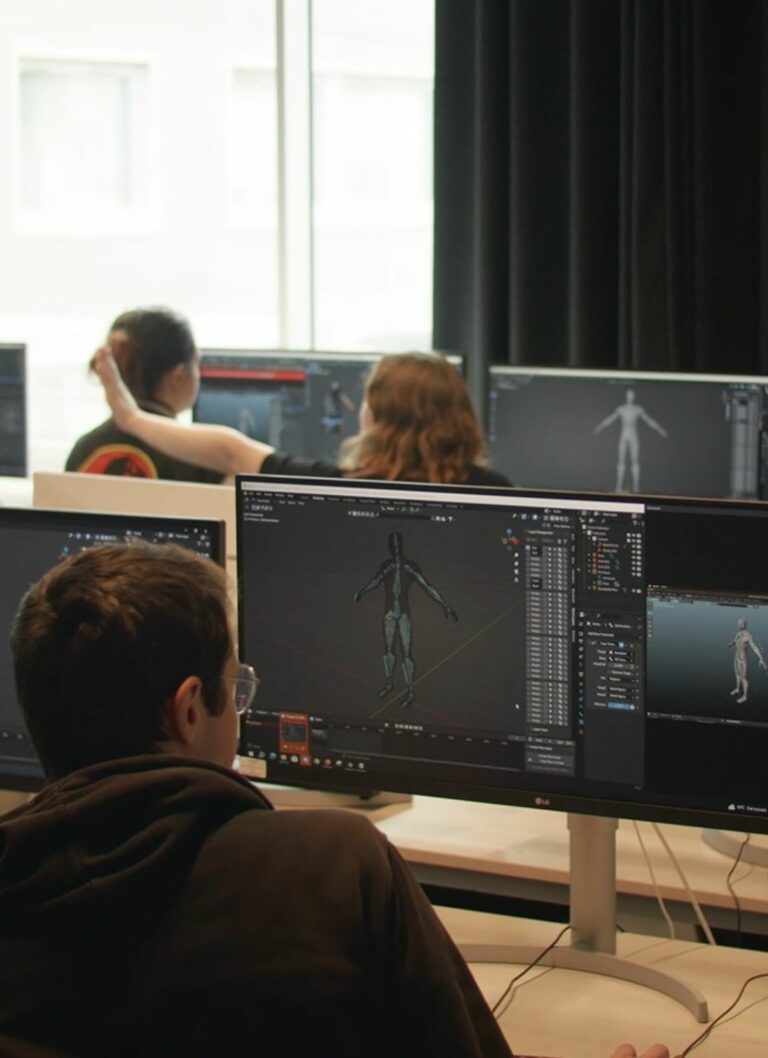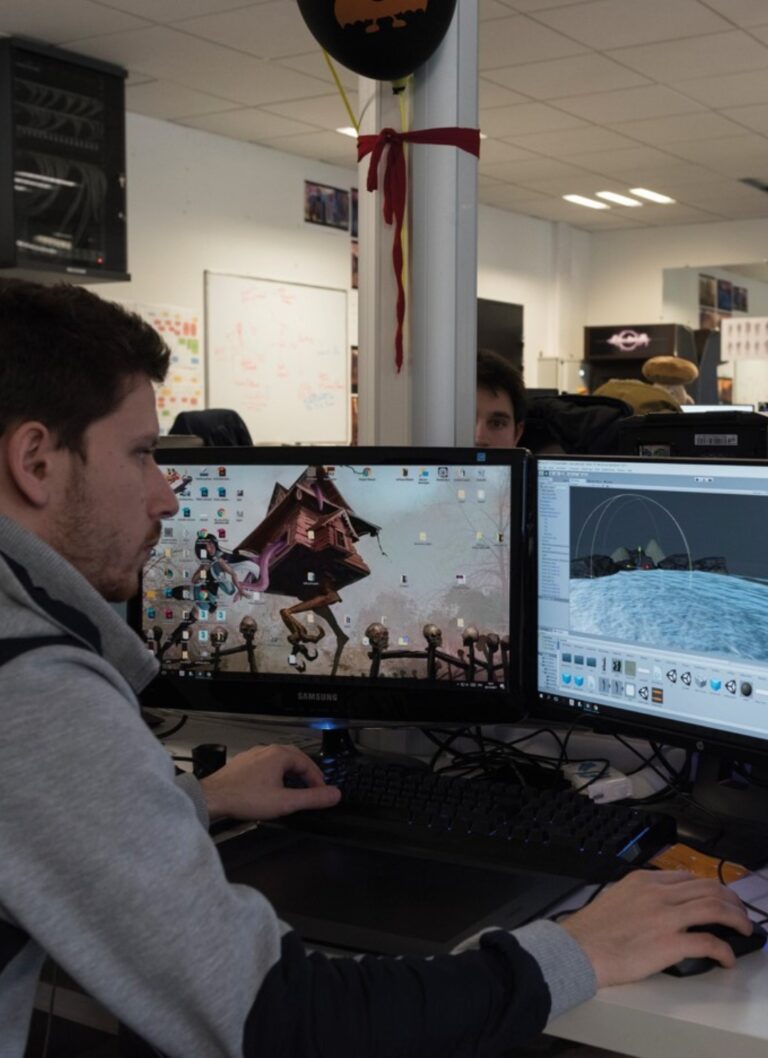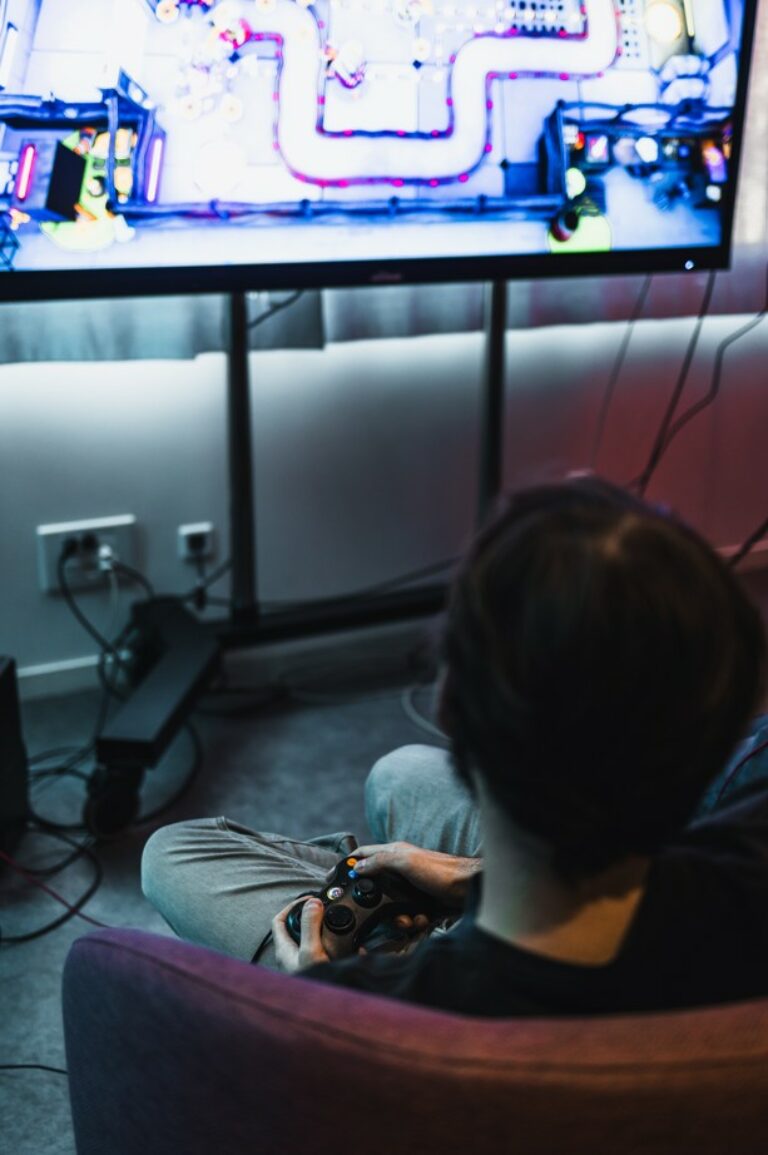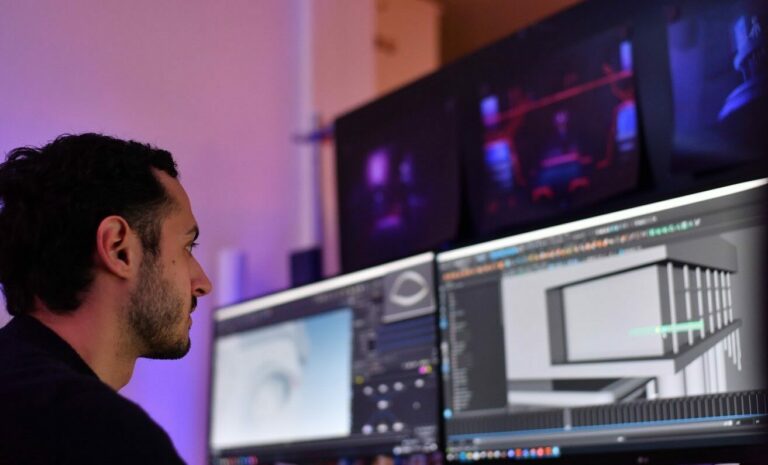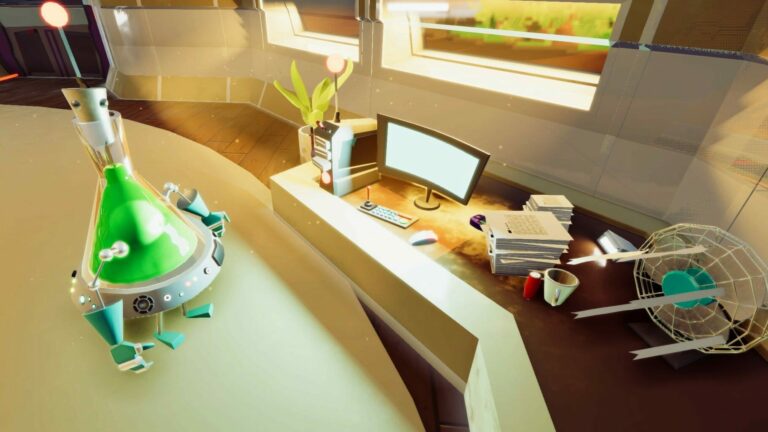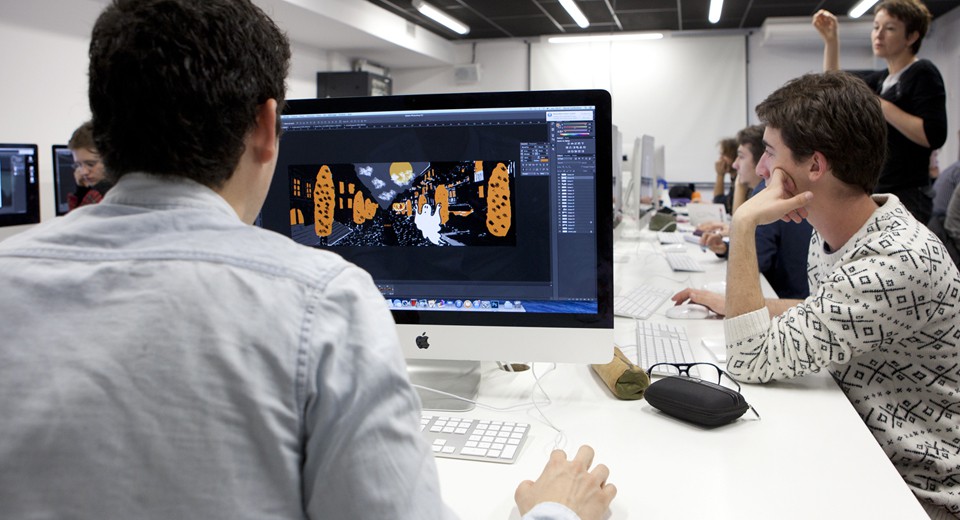
- Training Video Game
The game designer is the craftsman of the video game. It is thanks to them that the universe in which the player evolves comes to life, remains coherent, and offers a gaming experience that is both unique and enjoyable. In this sense, they must have a wide range of skills, both technical and artistic, but also managerial. Because, perhaps more than anyone else, it is the game designer who must inspire the team with their vision and energy.
Game designer duties and roles
As the true architect of video games, game designers must be highly rigorous and possess a fertile imagination. Great game designers such as Hideo Kojima (Metal Gear, Death Stranding), David Cage (Heavy Rain) and Will Wright, creator of The Sims, have succeeded in creating innovative concepts while offering immersive gaming experiences and solid, impressive technical achievements.
Also known as a “video game developer,” the game designer works with their team to create a video game.
Regardless of the genre (action, shooting, sports, strategy, adventure, or cozy gaming), all video games need a game designer who can devise the rules and develop the various parameters to ensure that these creations are playable, fun, and enjoyable for players.
Because, beyond the technical and artistic prowess that a video game may possess, its success depends first and foremost on good gameplay. It is this playability that will keep the player engaged, and all the game designer’s expertise must be expressed through it to create a memorable and attractive game. This has been the case from Pong to Uncharted and The Last of Us, and it is also the inventiveness of the game design of Hollow Knight, Dead Cells, and Portal that has made them global successes.
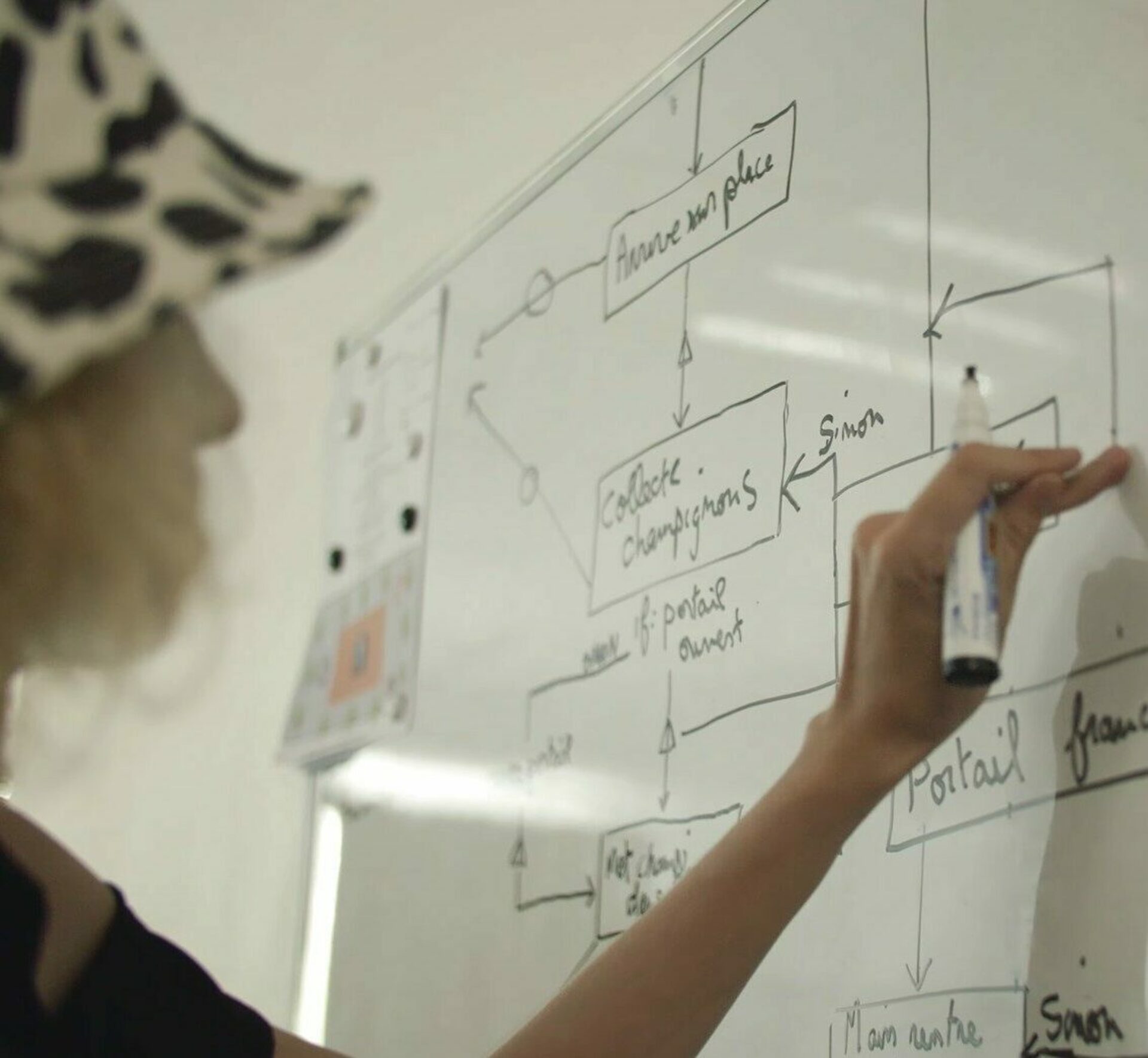
Skills and qualities required to be a game designer
To carry out this crucial task, game designers must be creative, organized, and agile. Once the project has been clearly defined, it is the game designer who will be responsible for drafting the specifications that will serve as a guideline throughout the development, production, and post-production phases of the video game project, for which they are responsible, along with the other team leaders. In this sense, it is very important for a game designer to be able to monitor the project effectively and rigorously, while being able to adapt the game to technical and economic constraints that may arise at any time.
Flexibility, rigor, and the ability to listen are therefore essential qualities for a game designer, who must be as much a good technician as an inspiring leader with strong management skills.
Tools and software used by game designers
As a project manager, game designers must be proficient in all the tools used in the video game production chain. Without necessarily having advanced skills in each of these areas, they must be able to understand and use the various programming languages, 3D modeling and animation tools, and game engines such as Unreal Engine and Unity, which are most commonly used in the industry.
In addition, game designers who are familiar with software such as Notion, Trello, and other project tracking tools will have an advantage, as these tools will allow them to keep track of production progress and identify potential obstacles.
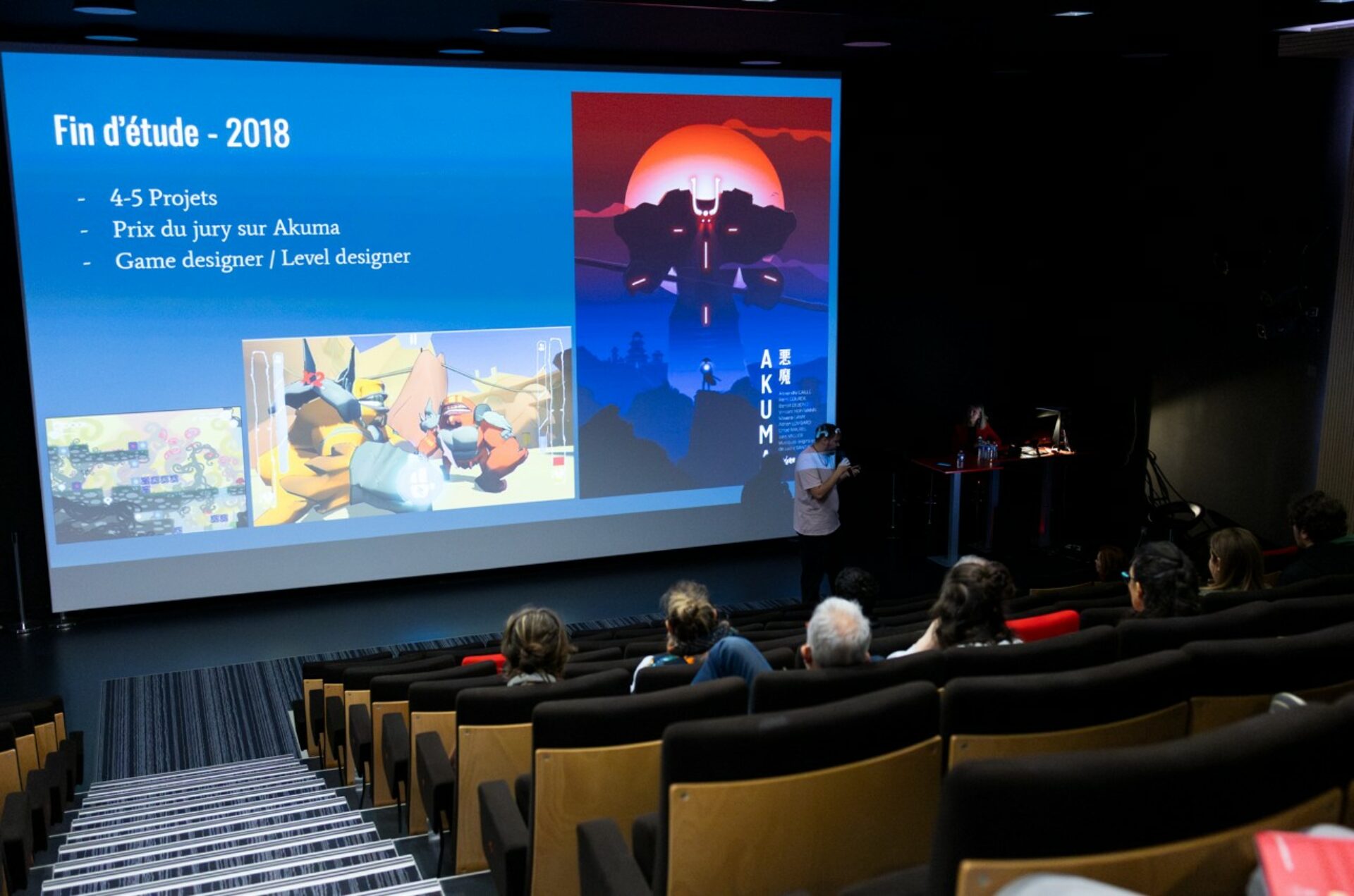
Which high school diploma should you choose?
If you are passionate about gaming, there are many options for high school diplomas that will allow you to pursue a career in the video game industry. However, it is important to note that specializing in science, mathematics, digital technology, and computer science will give you a real advantage when applying to higher education programs focused on the video game industry.
Training and qualifications to become a game designer
To become a game designer, artistic training in video games is the most obvious route. Through a cutting-edge higher education program combining project management with learning the tools of the trade, young graduates will be best placed to easily enter this sector.
What is the salary of a game designer?
Average starting salary
At the beginning of their career, a game designer earns a salary that varies depending on the project they are working on, the size of the studio, and the level of responsibility involved. Early career professionals are generally positioned toward the lower end of the salary range, especially when working on smaller teams or less complex productions.
Average salary for experienced game designers
With experience, game designers see their salary increase steadily as they take on more responsibility in gameplay systems, mechanics, and overall design decisions. More experienced profiles working on larger or more ambitious projects tend to earn closer to the median or upper end of the pay scale. Employment status (studio or freelance) and project scope also influence earnings.
Salary overview
- Typical salary range: $74,000 – $135,000 per year
- Median salary: ~$99,000 per year
Early career game designers usually earn closer to the lower end of the range, while experienced and senior designers earn closer to the median or upper end.
Career opportunities
With their degree in hand, some game designers join a large studio straight away, while others prefer smaller structures where they can give free rein to their creativity. Some also set up their own studio, partnering with established professionals or creating their own structure after graduating.
With sufficient experience, game designers can also become project managers for video game design on larger projects. They will then be required to manage larger teams and coordinate separate departments.
Sectors and companies that are hiring
Many video game enthusiasts are drawn to this field, but it is important to note that positions are limited and that technical excellence and interpersonal skills are key to obtaining a job in this sector. Programmers, graphic designers, and game designers are nevertheless the most sought-after positions.
It should be noted that there are real opportunities abroad for game designers who want to try their hand at expatriation, provided, of course, that they are able to express themselves professionally in English.
Which school should you choose to become a game designer?
With its four-year program available on campuses in Bordeaux, Montpellier, Nantes, Rennes, and Toulouse, ESMA is an excellent choice for those who want to become game designers. The program culminates in the creation of a complete video game, through which aspiring game designers can put their creativity to the test and confront the realities of video game production.

